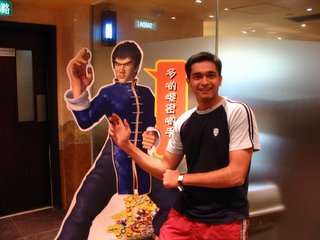A real Life Entrepreneur
Po Chung, my Professor for the entrepreneurship and creative innovation class, is the
co-founder of DHL.
What I am going to write will be useful to all the budding entrepreneurs and also for the rest of us who, though working for some one else, have that little spark to be an entrepreneur. I hope this fans the spark.
Po Chung said that
entrepreneurship in about salesmanship above all else. Why?
Because...
1. A startup has nothing – “you have to convince people to buy, to believe in your dream”.
2. Get talented people to work with you, especially if the salary isn't sky high.
3. Even getting suppliers is difficult when you are new to a business.
Here are some
key points a sales pitch should have..
a. Quote existing customers, in order to instantly build credibility.
b. Describe the pain that the potential customer is going through and how you can solve it.
c. Speak the language of the potential customer.
Here is an
example from DHL’s initial days..
HK was the R&R base for US troops during the Vietnam War. This would mean that cheques troops wrote in HK amounted to about US$1million a day. These cheques took 10days to clear, taking about 5 days to get to the destination and 5 days back.
Which meant that banks lost:
$280 in interest costs a day -> 10 days meant $2800 and multiply this by 250 days (avg time troops were in HK) and the cost to banks amounted to $700,000 a year.
There was the pain. And Po Chung spoke the language banks understood, that of money and savings. DHL would reduce the time to clear a cheque and thus solve the pain.
The rest as they say is history.
 In the last few newsletters of the Economist, Mckinsey Quarterly and Knowledge at Wharton, I have noticed a number of articles that relate to India and China.
In the last few newsletters of the Economist, Mckinsey Quarterly and Knowledge at Wharton, I have noticed a number of articles that relate to India and China.
